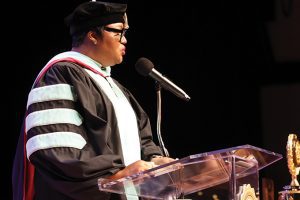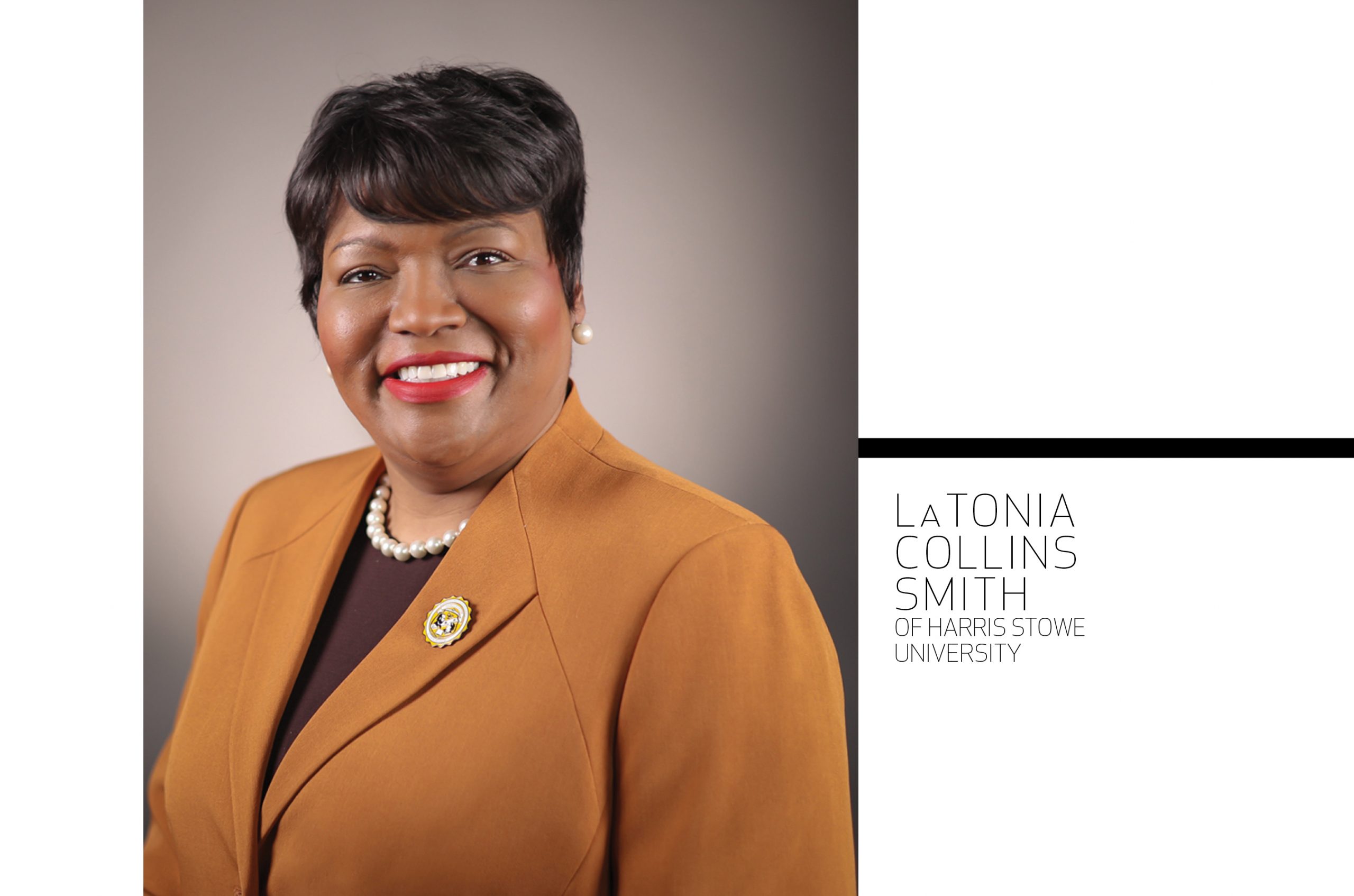 Many people have chosen to enrich their lives by going back to school, but few have taken to it quite as much as LaTonia Collins Smith, Ed.D. She began her professional career in social work, which eventually brought her to Harris Stowe University for a temporary opportunity related to public health. Inspired by the students she worked with, that temporary position became permanent, and she found herself enrolling in classes at Maryville University to earn a doctorate in higher education leadership. This year, she was appointed president of Harris Stowe, making her the first African American woman to fill the position.
Many people have chosen to enrich their lives by going back to school, but few have taken to it quite as much as LaTonia Collins Smith, Ed.D. She began her professional career in social work, which eventually brought her to Harris Stowe University for a temporary opportunity related to public health. Inspired by the students she worked with, that temporary position became permanent, and she found herself enrolling in classes at Maryville University to earn a doctorate in higher education leadership. This year, she was appointed president of Harris Stowe, making her the first African American woman to fill the position.
You’re from The Ville. What are some of your favorite things about growing up in St. Louis?
I would say Cardinals baseball is No. 1. The food is another St. Louis staple. I enjoy gooey butter cake and I absolutely love Dad’s oatmeal cookies.
Why have you chosen to stay in the area?
This is where my family is. After undergrad, I knew I wanted to come back and make an impact on the community. My first career was in social work and public health. I love and believe in St. Louis. This is my home.
Have you always had an interest in education?
Actually, yes. As far back as elementary school, I would say that I wanted to be a teacher when I grew up. I always enjoyed going to school. I prided myself on having good attendance and being involved. From a young age, I knew education was the key to success. When I was in high school, I realized there were other career paths that would also allow me to contribute to the community. I started studying sociology, but I quickly learned the difference between sociology and social work. Education is still very important to me. I went back to school for two masters degrees at Saint Louis University, and to be able to make
an impact at Harris Stowe, I earned a terminal degree in higher education.
How did you come to Harris Stowe University?
A friend of mine was working as a tutor at the university. She saw that they were looking for someone with masters degrees in both social work and public health for a position. She recommended I apply, and I got the job. It was only supposed to be for nine months. I was the part-time project coordinator for a grant through the Substance Abuse and Mental Health Services Administration sponsored by the White House initiative for historically Black colleges and universities. I worked with a small group of students who would become peer educators about HIV and AIDS, substance abuse and hepatitis. The grant was renewed for another four years. I also started volunteering on campus for other committees and began teaching first-year classes.
Why did you decide to stay at the university?
I fell in love with being on campus and interacting with students. They were the catalyst for me to go back and work on my doctorate in education. I credit them with helping me find my purpose and passion to work with young people. Having been involved in different areas on campus, I knew Harris Stowe really needed individuals who were committed to the students and who could be a staple in their lives, which can often include a lot of change and uncertainty. I love the population we serve, and I love our mission to create impactful change in the community.
How does it feel to be the first African American woman to serve as president at Harris Stowe?
It comes with a great sense of accomplishment, and I take nothing for granted. It’s an opportunity for me to be a role model for young people and especially women and girls who aspire to lead in education. I consider this a chance to be a beacon of hope and light for the next generation.
What is your vision for the university?
To continue to provide an affordable, accessible and diverse education to students who may be underserved and underrepresented. I also want to build our relationships with existing community partners and provide opportunities for new partnerships. Continuing to build fundraising efforts is another goal of mine.








